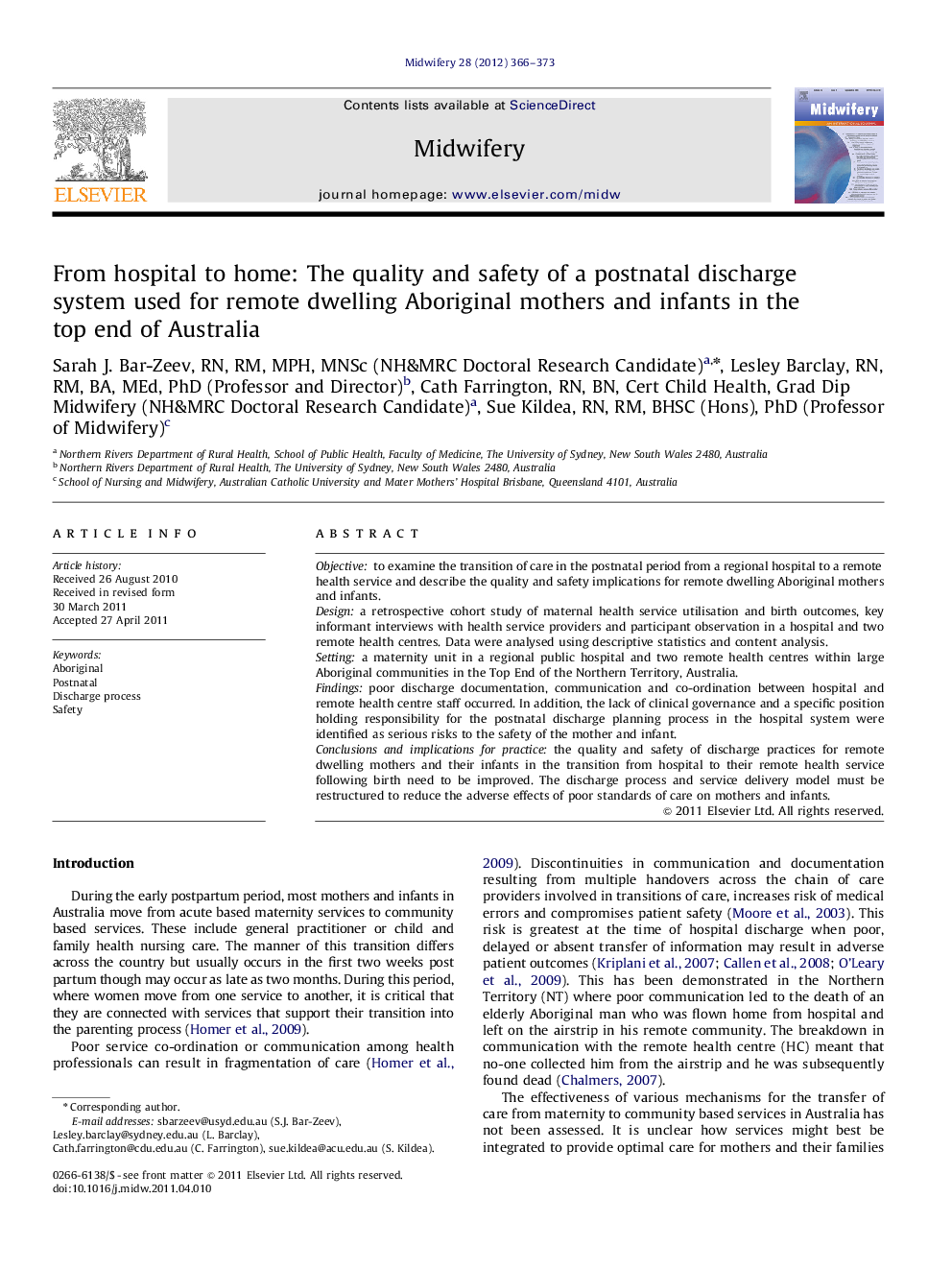| Article ID | Journal | Published Year | Pages | File Type |
|---|---|---|---|---|
| 1085112 | Midwifery | 2012 | 8 Pages |
Objectiveto examine the transition of care in the postnatal period from a regional hospital to a remote health service and describe the quality and safety implications for remote dwelling Aboriginal mothers and infants.Designa retrospective cohort study of maternal health service utilisation and birth outcomes, key informant interviews with health service providers and participant observation in a hospital and two remote health centres. Data were analysed using descriptive statistics and content analysis.Settinga maternity unit in a regional public hospital and two remote health centres within large Aboriginal communities in the Top End of the Northern Territory, Australia.Findingspoor discharge documentation, communication and co-ordination between hospital and remote health centre staff occurred. In addition, the lack of clinical governance and a specific position holding responsibility for the postnatal discharge planning process in the hospital system were identified as serious risks to the safety of the mother and infant.Conclusions and implications for practicethe quality and safety of discharge practices for remote dwelling mothers and their infants in the transition from hospital to their remote health service following birth need to be improved. The discharge process and service delivery model must be restructured to reduce the adverse effects of poor standards of care on mothers and infants.
